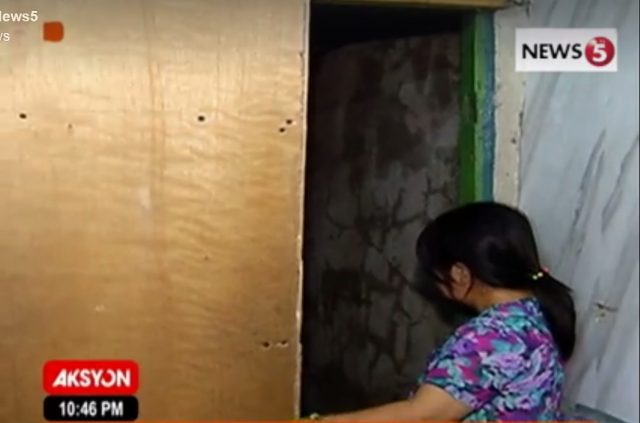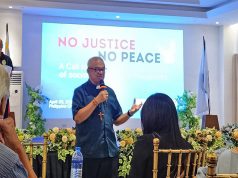MANILA – The answer seems almost too ready, as though the person responding knew what to say when questioned. When Station Commander Superintendent Robert Domingo was pressed about the “secret” detention room hidden behind a book case that was discovered by investigators from the Commission on Human Rights, Domingo replied that the 12 men and women detained in the room in the Manila Police District Station 1 in Tondo, Manila, had been arrested three days ago during a “one time, big time” drug bust, and that if controverted by those detained, it would be a case of “it’s their word against ours.” Domingo would add, “If they say they were arrested beyond the reglementary period of the police, that’s just allegation. As for us, we will enjoy the presumption of regularity in the performance of duty.”
What Domingo is talking about is a disputable presumption to be found in the rules on evidence, to wit, “that official duty has been regularly performed.” A disputable presumption is one which a court will permit to stand if the opposing party does not contradict it; if the opposing party does challenge it and presents evidence against it, then the presumption loses whatever evidentiary value it had.
In situations such as this, we should let the facts speak for themselves, meaning, we should let the jail cell speak for itself. It is a small enclosure, measuring about one meter by six meters, and looked to be an alleyway that had been closed off. Except for an exhaust fan, it had no ventilation; it also lacked lights and the urinals that could be found inside were not functioning. The cell was concealed behind a bookshelf, and when the Commission conducted their inspection, it found 12 men and women crammed inside.
We’ve only been talking about the room here. Regarding the dozen individuals found inside the room, they said that they had been arrested on drug charges. However, when reporters asked the police for the blotter attesting to the arrests, the latter could only reply that it had not been prepared and that the documents pertaining to the arrest and detention of the 12 were still being “processed.” The 12 said that their families had not been informed of their arrests and that the authorities had demanded from them sums ranging from P40,000 to P100,000 in exchange for their release. One woman claimed that she and her husband had already been detained for a week. Because of the inadequate toilet facilities, the detainees had to urinate and relieve themselves in plastic bags, a claim which is easy to believe.
Without having to say a word, a mere ocular inspection of the holding cell makes it impossible to support any pretension of presumption of regularity. To enjoy something means being able to take pleasure in or receive satisfaction from something, and I cannot see how Domingo and his people over at MPD Station 1 can take pleasure or satisfaction from a disputable presumption when the room speaks so eloquently and so dismally for itself: cramped, dark, airless, hidden behind a book case and revealed only when the Commission on Human Rights acted on a tip and visited the premises. There can be no other conclusion except that it was used to secretly detain suspects.
This latest scandal is strike three against President Duterte’s war on drugs. The first was the unacceptable number of extrajudicial killings in the implementation of Oplan Tokhang; the second was the “tokhang-for-ransom” scheme perpetrated by corrupt police officials that culminated in the murder of a Korean businessman, and now we have secret detentions. Secret detentions were a thing of the past, or at least I thought so, especially rampant during martial law. The discovery of the holding room in the MPD station 1 violates the most cherished freedoms in our Bill of Rights. No person can be deprived of liberty without due process of law, and when a public official or employee detains someone without legal grounds, that official or employee becomes liable for the crime of arbitrary detention. Not only that, the Constitution declares as abhorrent the use of substandard or inadequate penal facilities, as we so obviously have in this case. The violations are so patent that it virtually renders any claim to presumption of regularity.
If indeed MPD Station 1 performed its official duty with regularity, why was the holding room concealed behind a bookcase? Why were 12 people crammed into a dark, airless room that had no working toilets? Where is the paperwork cataloguing their arrest and detention? Shouldn’t these have been “processed” as soon as they were taken in? These are only four questions, but doubtless, people want to ask many more.
One thing is clear: secret detentions and inhumane detention facilities represent continuing violations of our Charter, a leitmotif of the government’s ill-conceived war on illegal drugs.










